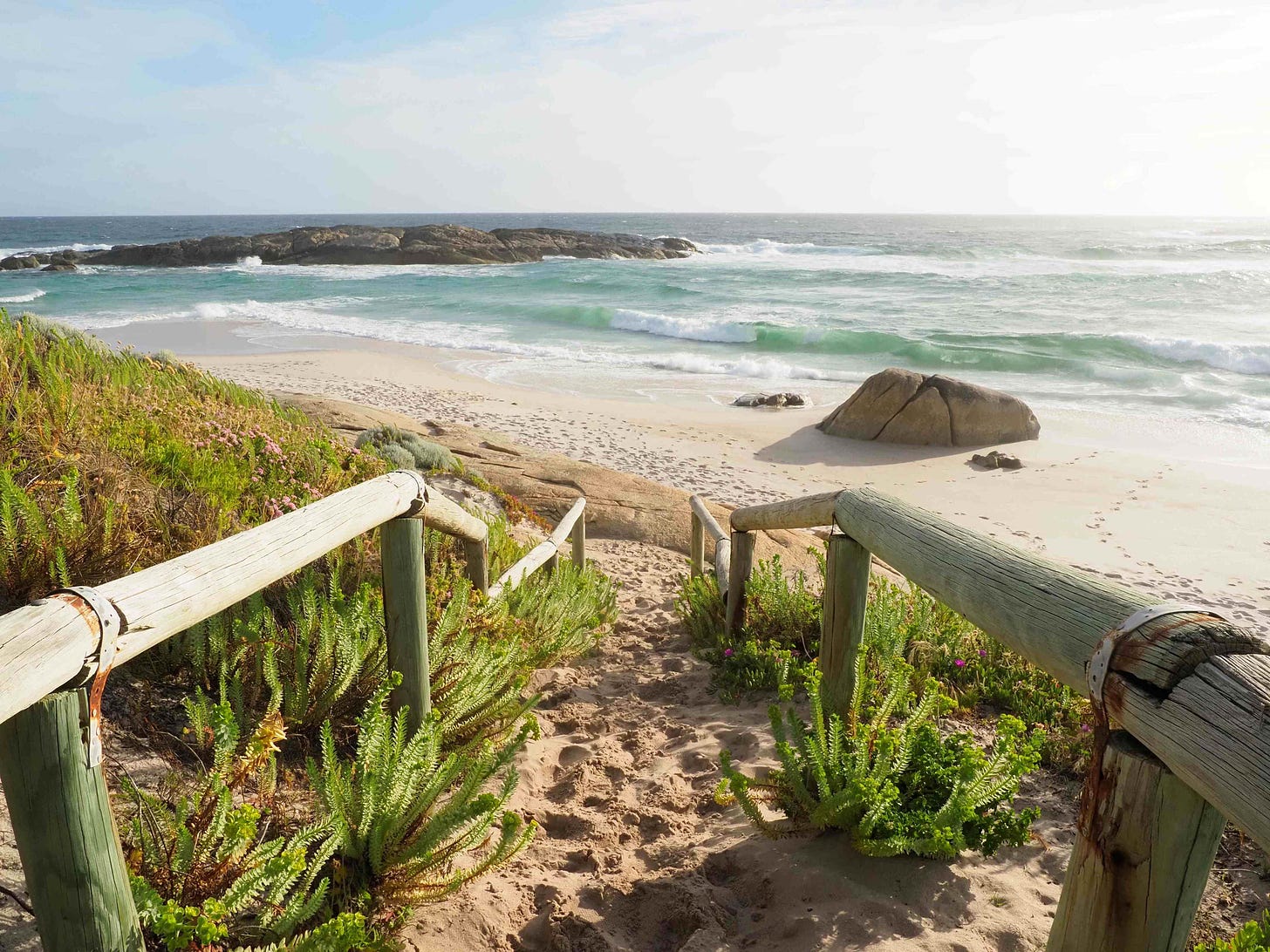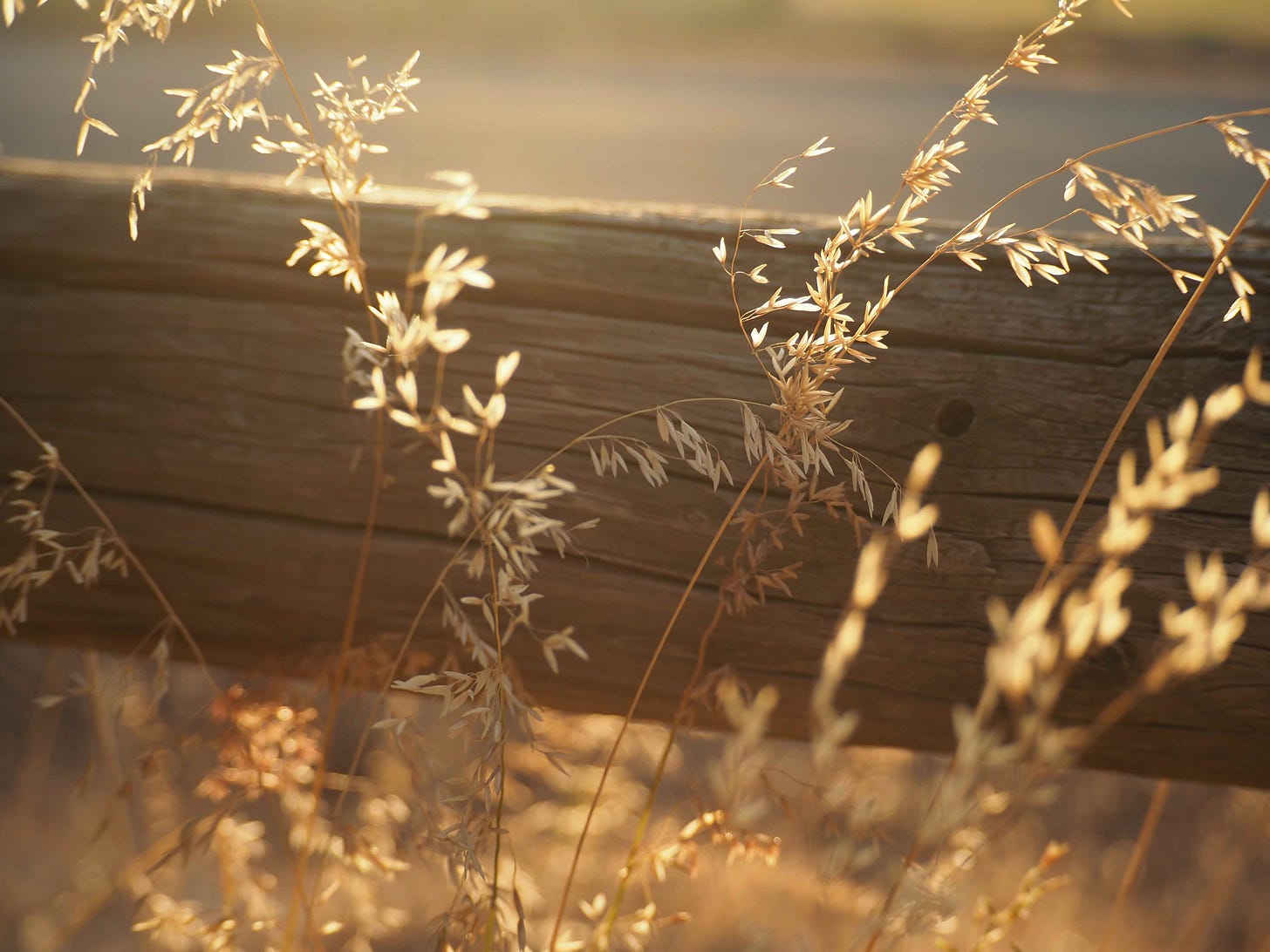Hey friends,
I’m not sure about you, but I’m finding myself pretty infuriated, frustrated, and just generally fed up and disillusioned with the state of the world right now.
So, although I had big intentions to write a more uplifting issue of lemonade this week, the world — as a whole — doesn’t feel too uplifting right now. But it is still beautiful and full of little miracles, so I’m trying to go back to the basics and remind myself of that.
My mum — who as you probably know, has young-onset Alzheimer’s — turned around to me on the phone the other day and said “you’re not very fun, are you?”, and it stung.
I used to be fun. I used to be adventurous. I used to be spontaneous. I used to laugh a lot and climb mountains before breakfast. I’d also leave a lot more things up to chance and had a lot more faith back then that it would all just work out.
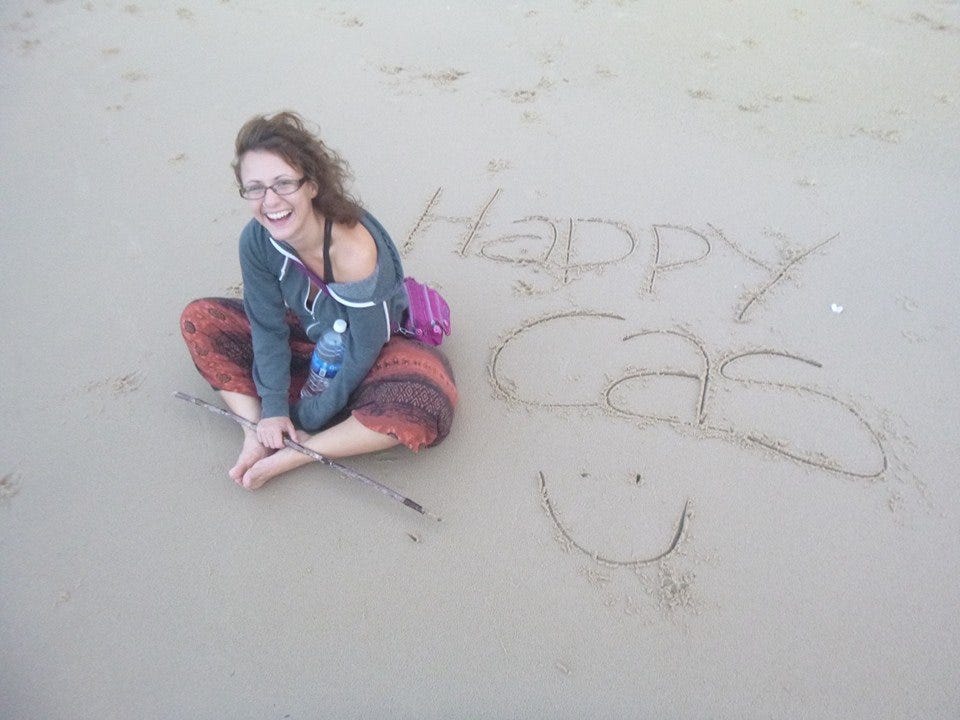
Although I know that person is still in there somewhere, she feels a bit buried under the weight of the last few years — and doesn’t know how to have a “fun” conversation with someone who will spend 40 minutes obsessing over the post, then start reading old birthday cards over and over again out loud, then put the phone down while they go for a wee and forget to come back to it, and then let the dog out onto the street and just shut down and go non-verbal when I tell them to please let the dog back into the house and close the door.
Oh, and did I mention how much I hate phonecalls? Anyway, things are tough. I keep reminding myself of the phrase “forged in fire” — a reality TV show that turned into my guilty pleasure whenever I’d leave my beach shack in Cambodia and head up to the big city for some AC and hot showers. For some reason, it was always on the TV, no matter which hotel or what time of day, and for some other reason, I always seemed to enjoy it, so there’s that.
Still, in lieu of much else — turns out Forged in Fire doesn’t cut it anymore —nature has been helping me get through these last few years/months/weeks/days.
And, even though I lament the fact I have to get out there with my hosepipe and hand water the glorified weed bed that I call my garden once (and sometimes twice) a day, I keep reminding myself that nurturing the garden is also nurturing myself — even though it just feels like another thing I have to do on already too-long to-do list.
The heat doesn’t help, either, though. Which gets me onto what I actually wanted to write about today. This is a bit of a long one, but hopefully a good one.
Seasons of life and seasons of lemons
We're nearing the end of the prime lemon-growing season here in Australia - and, if my neck of the woods is anything to go by, prime anything-growing season, including myself. I call this my aestivation time – the summer version of hibernation.
While it's a balmy 32°C today, the Mercury soared to 37°C last weekend and summer feels like it’s come extra early this year, bringing dry, dusty days and an abundance of snakes, flies, and bushfires with it.
I find it interesting how many people here love summer, but I also think you’d probably find a correlation between how close they live to the ocean or some sort of swimming spot and their enjoyment of the season.
Personally, I definitely liked summer better when I lived near the sea – both for the sea itself and the sea breeze, which did a wonderful job keeping the flies and the mozzies away. Now, I end up stuck inside a lot more than I’d like.
Still, I’ve been trying really hard to appreciate summer this year. To observe — with appreciation but without judgement — the changing of the seasons and all the different gifts it brings. Like the purple jacaranda trees and the buttercup-yellow flowers on my snakevine, and the way the setting sun catches on the dry grass just right and fills the void in my heart for just a second.
And, while I’m still grieving the drying-up of the seasonal creek in the bushland behind my house, I also get to remember that I appreciate it more because it’s seasonal, rather than just taking it for granted that it’s there all the time.
I guess it’s like taking the last of the season’s lemons and using them to make lemon juice or syrup so you can make lemonade all year round. Of course, you still miss fresh lemons, but you make do until lemon season comes around again.
For hundreds of millennia, humans lived by the seasons. We’d observe nature and look for seasonal markers, learning when was the right time to plant, to harvest, to prepare the seeds and the gardens, and even to prep our stocks for more barren seasons, like cold winters or hot summers. We lived in sync and harmony with nature, instead of seeing it as yet another thing to be commodified.
Now, it feels like there’s a step removed between us and nature – and it isn’t just the walls that we build around ourselves to keep nature out and us in (which I must admit, I’m kind of grateful for, especially given the aforementioned flies and the heat).
But, while there are benefits – like access to fresh lemons out of season, and mass-produced lemonades so you don’t have to do any squeezing, there's also a sense of loss and longing that can't be filled by a trip to the supermarket.
I know I’m not alone in this, either. Recently there has been a big uptick in people around the world looking to get back to nature. To tune back into its wisdom, to let it show us the way back to ourselves – and back to each other.
This desire to get back to nature has come hand-in-hand with an increasing awareness of things like re-wilding and regenerative agriculture, and an increased appreciation for things like walking pilgrimages, wilderness retreats, wild swimming, and herbal remedies — the basis of modern medicine — as well as home gardening, wonky veg, and buying local, seasonal produce.
It’s also come alongside a growing appreciation and understanding of First Nations people and how even while building homes, growing food, and travelling, they would always find ways to live in sync with the environment, rather than trying to shape and force it into something else — seeing themselves as custodians of the land and the land as something to be protected, not just used and abused for power and profit.
While I wish I had a local wild swimming spot, for me, (and probably most of us), just spending some time in nature can act as a great midway point to filling that hole in our hearts – and give us some surprising insights into our own minds and bodies, because, try as we may to fight it, we're all just nature too. And, like lemons, we also go through our own seasons.
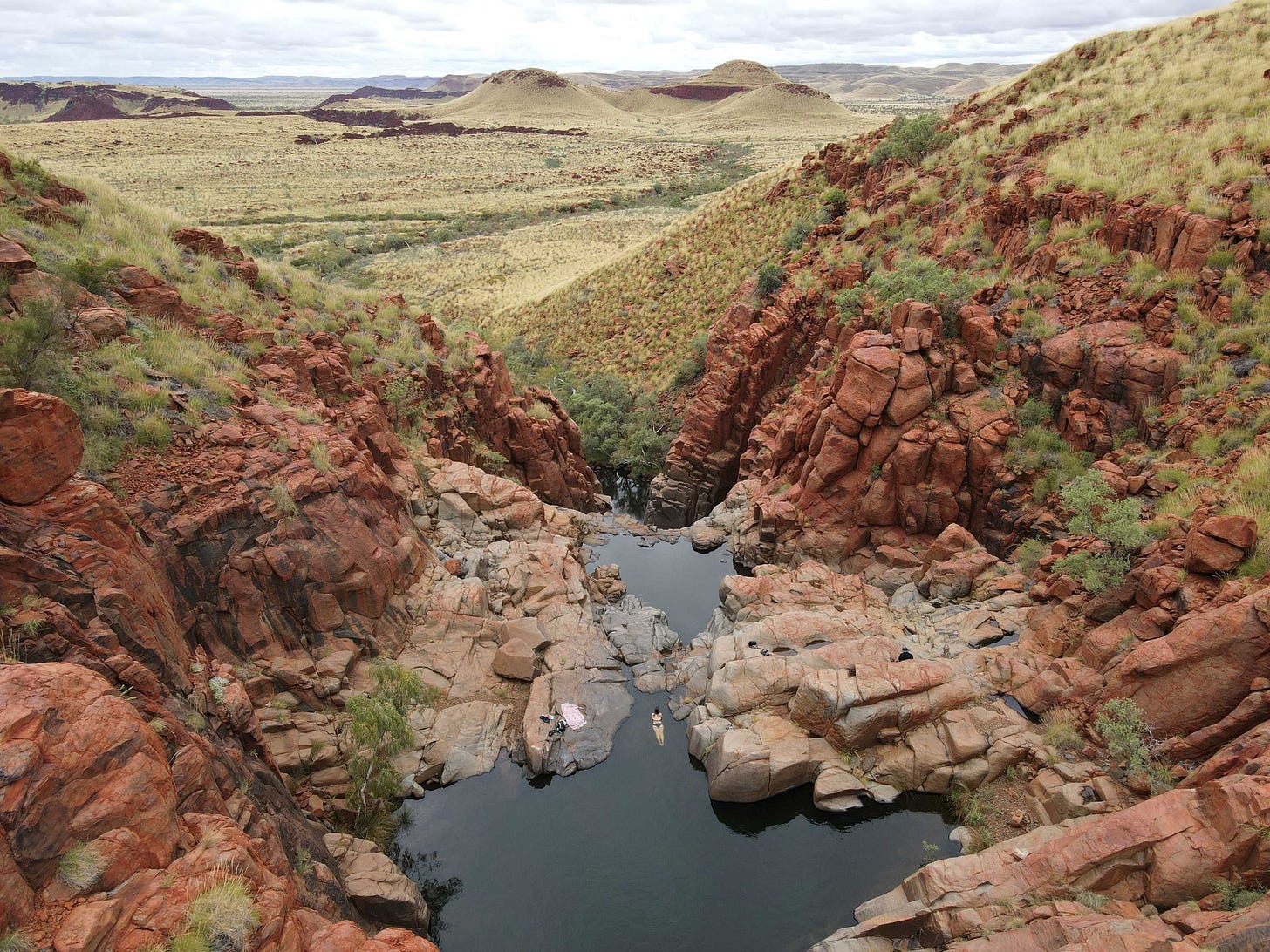
A good way to start is by simply observing the natural world around you – with appreciation, but without judgement. Who are we to question the birds or the bees or when the flowers bloom?
This idea of “without judgement” might feel a little strange, but it's also a good way of getting into practice for observing and appreciating our thoughts without judgement too – which, while even more challenging, is just as valuable.
E.g. I can observe my frustration about the heat and the flies and feeling stuck inside and not able to get as much work done, but instead of letting myself get worked up over it and becoming more and more frustrated, I can just notice it, thank it for everything that it’s showing me – like understanding that the heat makes me tired and grouchy and I'm probably dehydrated, so I should probably drink some water, have a nap or take a cold shower – and let it go.
It’s a technique I first learned at a Vipassana retreat I ended up at my accident* nearly a decade ago, and it taught me to separate my self from my mind.
Despite what we might believe – or what our thoughts have told us, our thoughts are not actually our selves – they’re an us-made construct; a combination of our lived experiences, things we’ve learned along the way, conditioning, external influences, and all sorts of other things. And so, when we take a step back, we can lift the veil and see things a little differently.
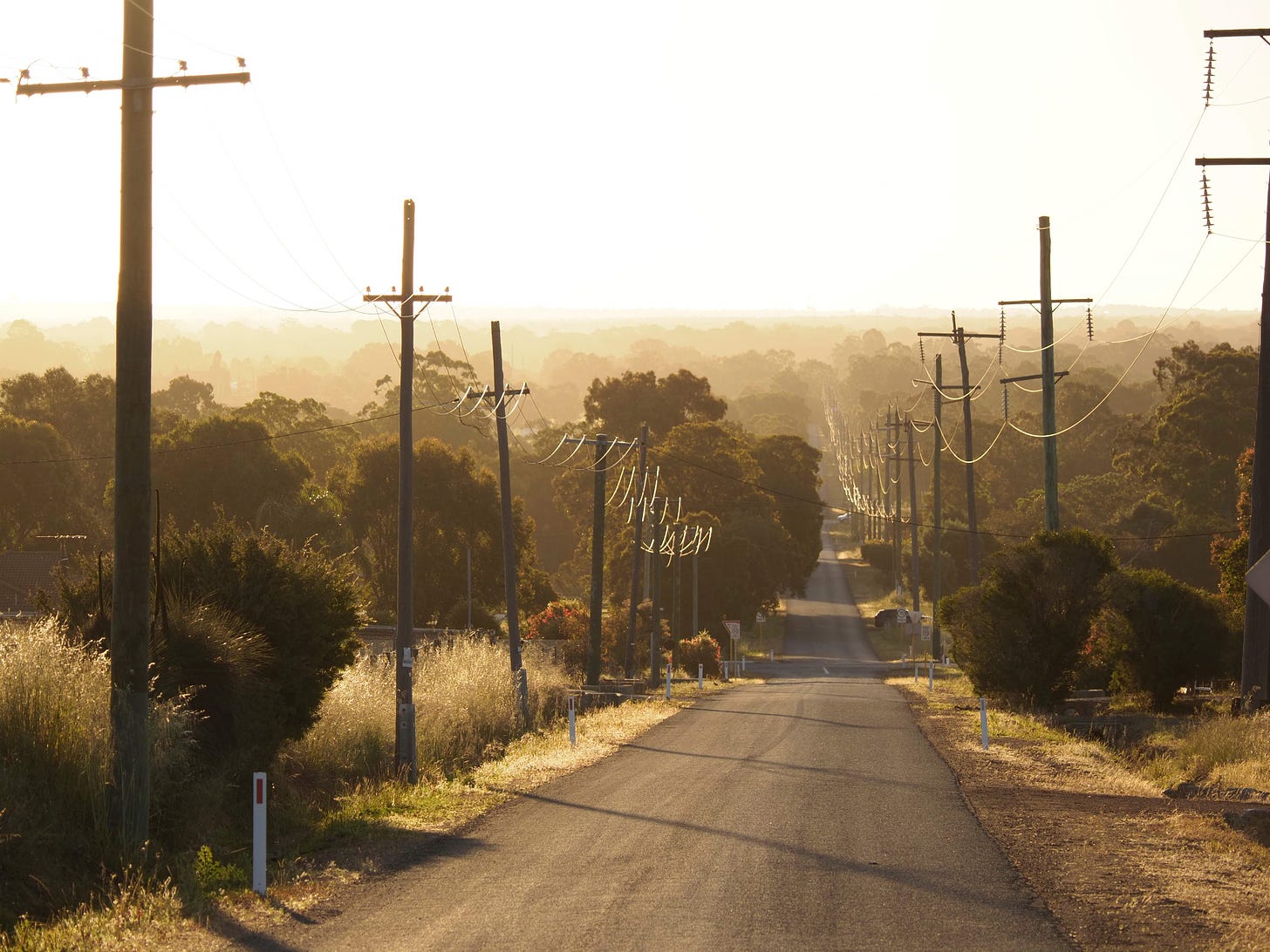
This simple step can help give us a great insight into why we are the way we are – and help us make any changes we want to make – just like how those early farmers observed the landscapes and the seasons and the wild, and then decided to come up with a plan on how to best cultivate them to their advantage.
In my writing workshops, I usually use the analogy that we get to be the writers of our stories – but we also get to be the gardeners of our minds. We get to choose what seeds to plant and the ones we want to nourish and tend to and harvest, and we get to pull out the weeds, like the thought patterns and negative habits that are no longer serving us.
In our minds, we get to choose to grow the lemons and make the lemonade, all year round.
And, in our external world, we are no doubt overwhelmed with terrible news, but we also get to choose to notice – and perhaps focus on – the good things. Like the way the light catches things just so; the birds that have started coming around the garden; the flowers that are blooming; or the leaves that have fallen and how good and crunchy they feel underfoot on a frosty morning.
If we slow down enough and pay enough attention, we can also understand that, for the tree, losing its leaves gives it an opportunity to go inward – to turn its attention to what it needs to get it through the winter so it can grow big and strong come spring.
Going through seasons requires us all to go through changes — sometimes we shed our leaves, sometimes we grow new ones or flowers — but it’s all part of this journey we call life.
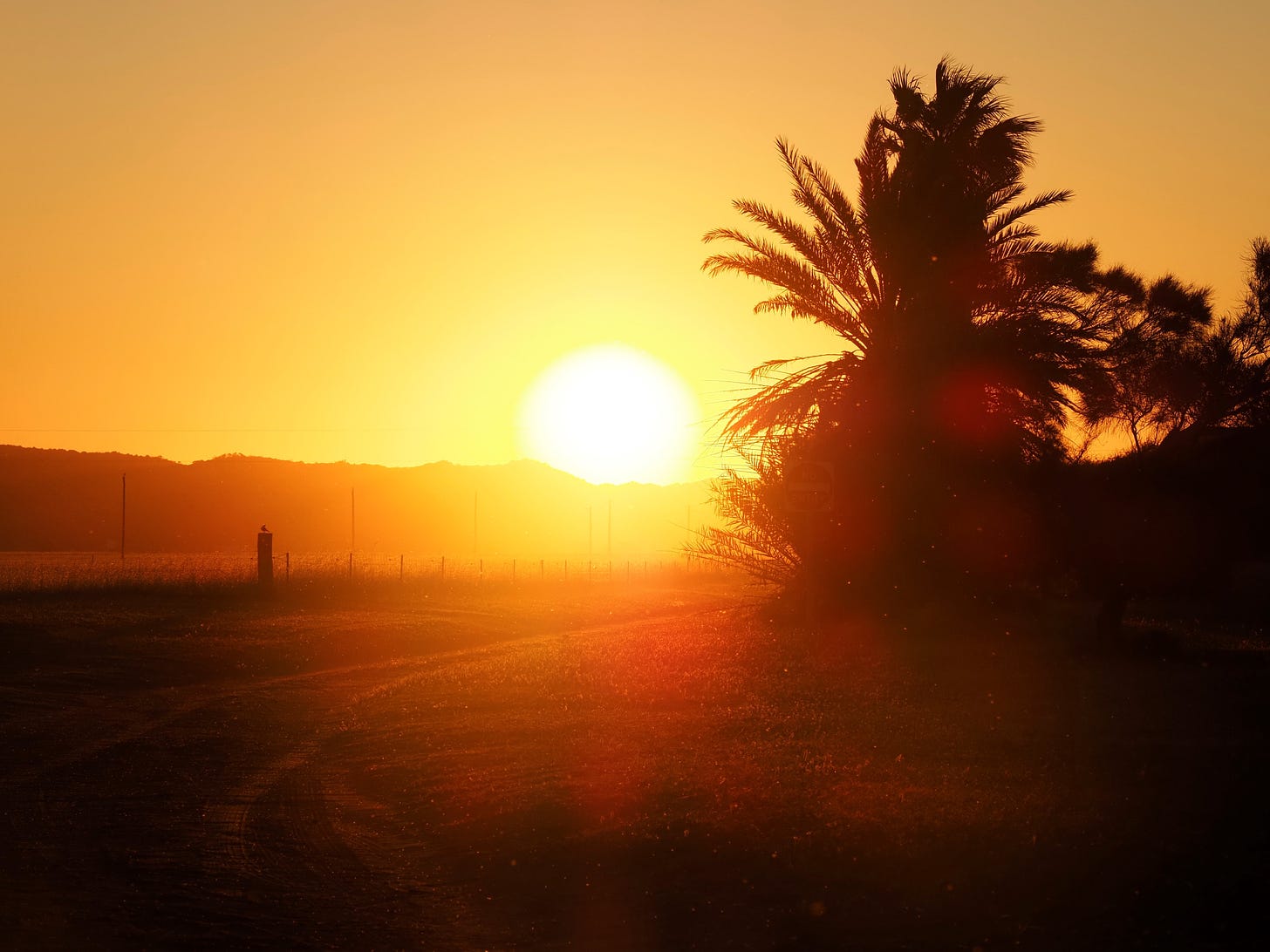
There's no doubt things feel pretty awful right now. But nature will keep turning, the seasons will keep coming, and our seasons will too.
We can't stop the clock, but we can give ourselves five minutes to breathe deeply, to notice it, and to attune ourselves to the magic that is this planet we live on – and the magic that lights up our brains. And, we can prepare for the change in the season, and do what we have to do to make this transition as easy as possible.
Here's to little joys and little miracles and all the things that keep the world turning, even when it feels like the darkest of nights – and the darkest of days.
Love always,
Cass x
*The accidental Vipassana came about when I was travelling with an ex from Malaysia to Thailand. We ended up hopping on a boat over to one of the islands and it was filled with drunk backpackers and was so far from our scene. We didn't have any plans, so we asked the (relatively sober-looking) person next to us what their plans were and if they wanted to share a taxi. They said they were off to this Vipassana retreat and suggested we come too. So, off we went.
It wouldn't be a lie if I said I hated almost every minute of it – wooden dorm beds without pillows or mattresses and all – but it was also one of the most expansive and transformative experiences of my life, and I'm so grateful that I had the opportunity and for how it all unfolded.
At least, in hindsight, I am.





